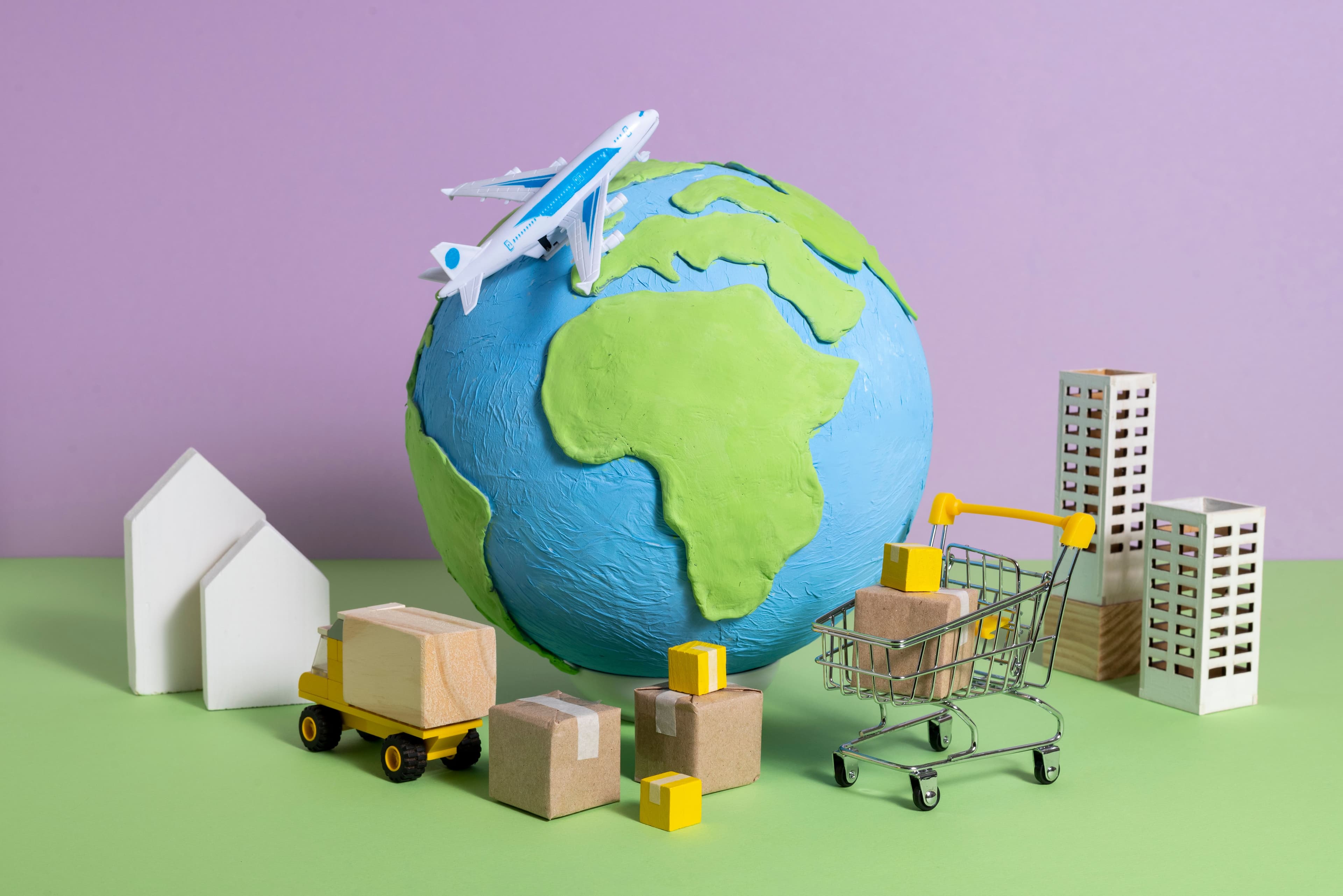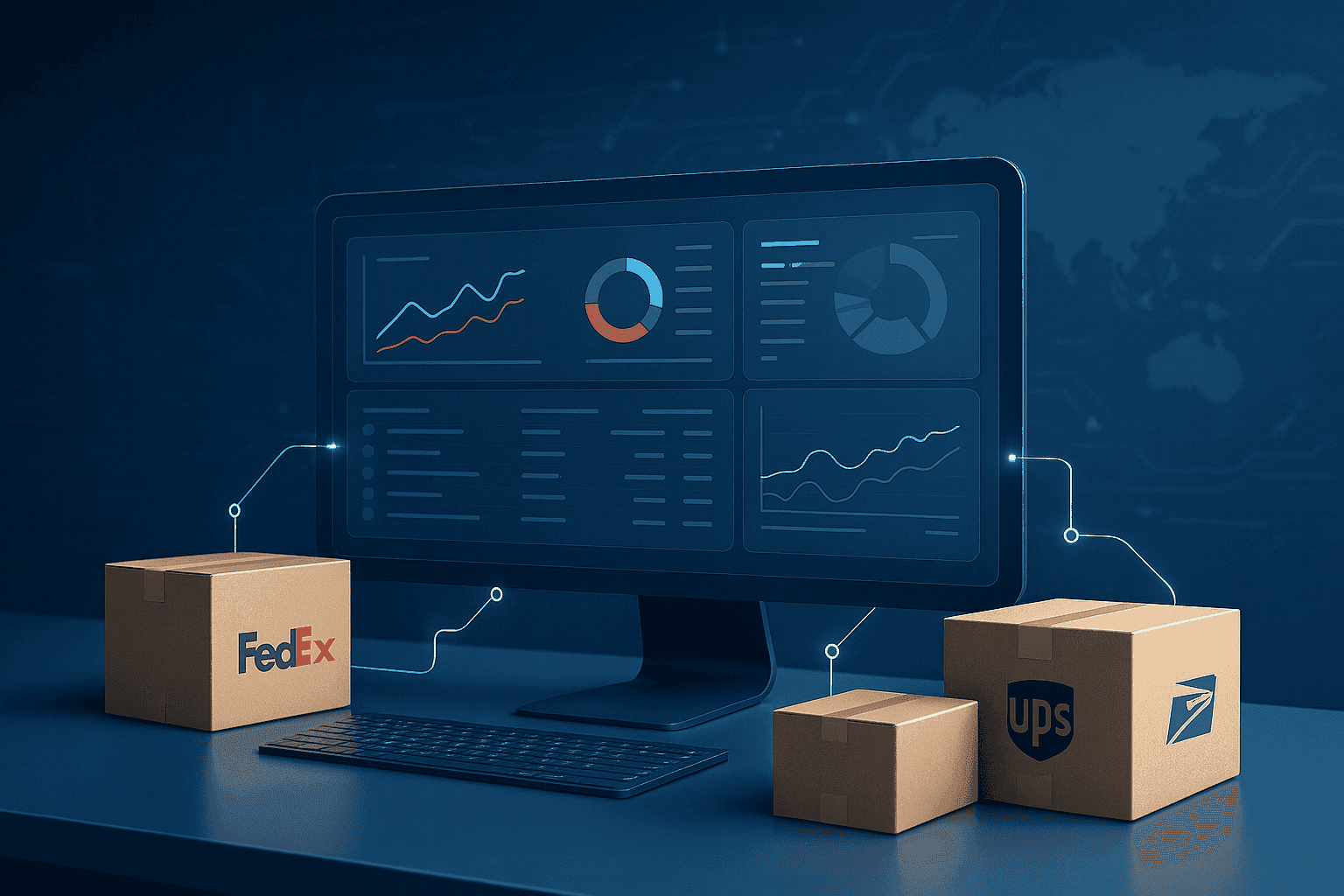New York, rightfully known as the city that never sleeps, is often at the bustling intersection of business, politics, and innovation. Within this energetic metropolis, one often under-discussed but highly vital aspect is logistics and the transport of various products around the city. This industry is the backbone of our everyday lives, delivering goods to our doorsteps, filling our grocery store shelves, and ensuring the continuous flow of commerce. Logistics keeps the city running so New Yorkers can keep doing their own thing without having to spend energy on how to make it happen. Logistics is an essential, yet sometimes overlooked part of what makes this city work.
However, the logistics industry has an environmental dark side. According to the International Transport Forum, logistics contributes nearly 8% of global greenhouse gas emissions. As global warming reaches a critical turning point, we can no longer afford to ignore this issue. The logistics industry must evolve to combat global warming and reduce its carbon footprint.
But all is not lost; there are innovative solutions available that could lead the way to a greener, more sustainable future. Here, we show you a couple of cutting-edge approaches that logistics companies can implement around the country to lower emissions and promote eco-friendly transportation methods that will, in the end, benefit all of us.
Embracing Electric and Hydrogen-Powered Trucks
Traditional diesel trucks have a significant carbon footprint. They have been efficient for moving goods at a lower operational cost than regular gasoline, but at the same time, their emissions do more harm than good. The eventual transition to electric and hydrogen-powered trucks would substantially reduce emissions, helping companies maintain better control of their budgets and costs without depending on the international oil markets and the negatives of relying on fossil fuels.
According to BloombergNEF, electric truck sales are projected to grow from 2% of the total market in the early 2020s to 32% by 2030. Major companies like Tesla and Nikola are already working on models for trucks that offer substantial ranges without emitting a single drop of carbon. Further incentives from governments and investments in charging infrastructure would expedite this shift. Imagine fleets of trucks and cars that are fuel-efficient, non-polluting, and readily available. A smokeless road where vehicles don’t harm the planet.
Utilizing Renewable Energy in Warehousing
With bigger companies that require huge storage units, warehousing is a significant component of the logistics industry, often consuming large amounts of energy to keep the place functioning and their personnel comfortable. Transitioning to renewable energy sources like solar and wind power can significantly reduce emissions and will definitely make the space better for all parties involved.
For example, Amazon's fulfillment centers in the UK have implemented rooftop solar panels, generating more than 20 megawatts of renewable energy. Implementing these technologies across the logistics sector could save thousands of tons of CO2 emissions annually. Becoming a green company is a long road, but it is exactly the kind of approach we need to truly improve our relationship with Mother Earth.
Optimizing Routes Through AI and Machine Learning
As we have talked about in the same blog, Artificial Intelligence (AI) and Machine Learning (ML) can be harnessed to optimize transportation routes. By calculating the shortest and most fuel-efficient paths, companies can save both time and energy, thus making their operations more efficient and streamlined. This is already happening at a certain level. UPS, for instance, implemented their ORION system, an AI-powered route optimization platform that saves more than 10 million gallons of fuel annually, reducing their greenhouse gas emissions by 100,000 metric tons. Similar technology could revolutionize the entire industry. With enough time to study the variables and adapt the software, optimization will just get better with each update.
Investing in Sustainable Packaging Solutions
Products need to arrive at their destinations with protection and a clear message. Packaging plays a crucial role in logistics, since the packaging is the first element that a client will see, thus giving them a first impression. Transitioning to recyclable or biodegradable packaging can minimize waste and support a sustainable supply chain, while sending a clear message to clients: We care. According to the Environmental Protection Agency, packaging accounts for nearly 30% of all municipal solid waste in the U.S. Companies like Unilever have pledged to make all their packaging recyclable, reusable, or compostable by 2025, so that’s a promising solution to a simple, yet ever-present problem. These efforts, if more widely adopted, could have a monumental impact on the environmental changes that are happening.
Promoting Collaboration and Shared Transport
In an unseen twist regarding collaborations, rather than individual companies operating their fleets, shared transport can maximize efficiency and reduce emissions. According to the World Economic Forum, collaboration between companies and shared transport could decrease CO2 emissions by 30%. By implementing strategies such as collaborative distribution, backhauling, and co-loading, the logistics sector can minimize the number of vehicles on the road and consequently reduce emissions. This solution might sound like a simple and clear solution, but it requires a level of commitment to the environment that is quite hard to see at the level of big companies.
Logistics isn’t just about moving packages; it's a fundamental component of our global economy, and its impact on the environment cannot be overlooked. New Yorkers are known for their tenacity, adaptability, and forward-thinking, and we at Airpals are known for our passion for doing things right. Let us lead the charge in encouraging the logistics industry to embrace these changes. The time to act is now, for the sake of our city, our country, and our planet. Every step taken towards greener logistics is a step closer to a sustainable future, and the time for bold action and innovation is right now. The logistics industry, a vital part of our daily lives, has the tools, the technology, and the imperative to make meaningful changes. As we close this article, we want to remind you to subscribe to our newsletter to receive more interesting content, and don’t forget to engage with us on social media and let us know your thoughts on these complex issues happening all around us.




